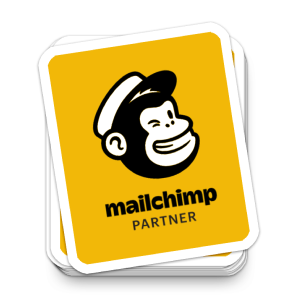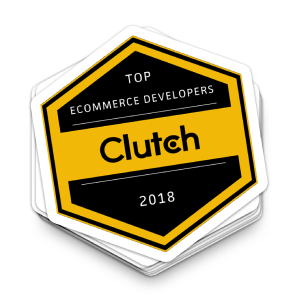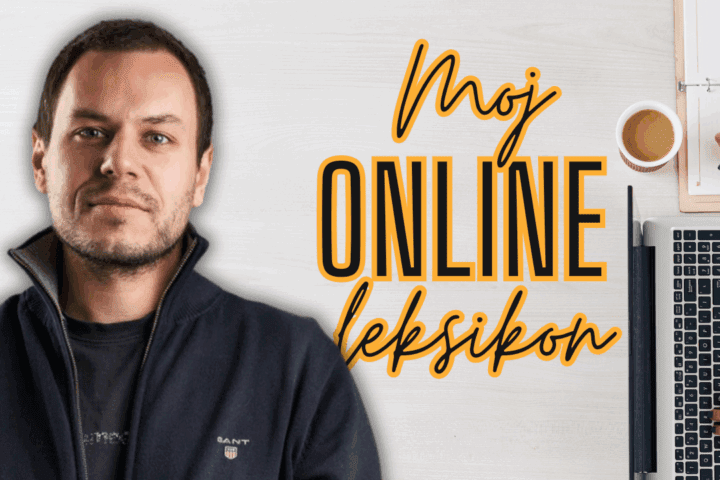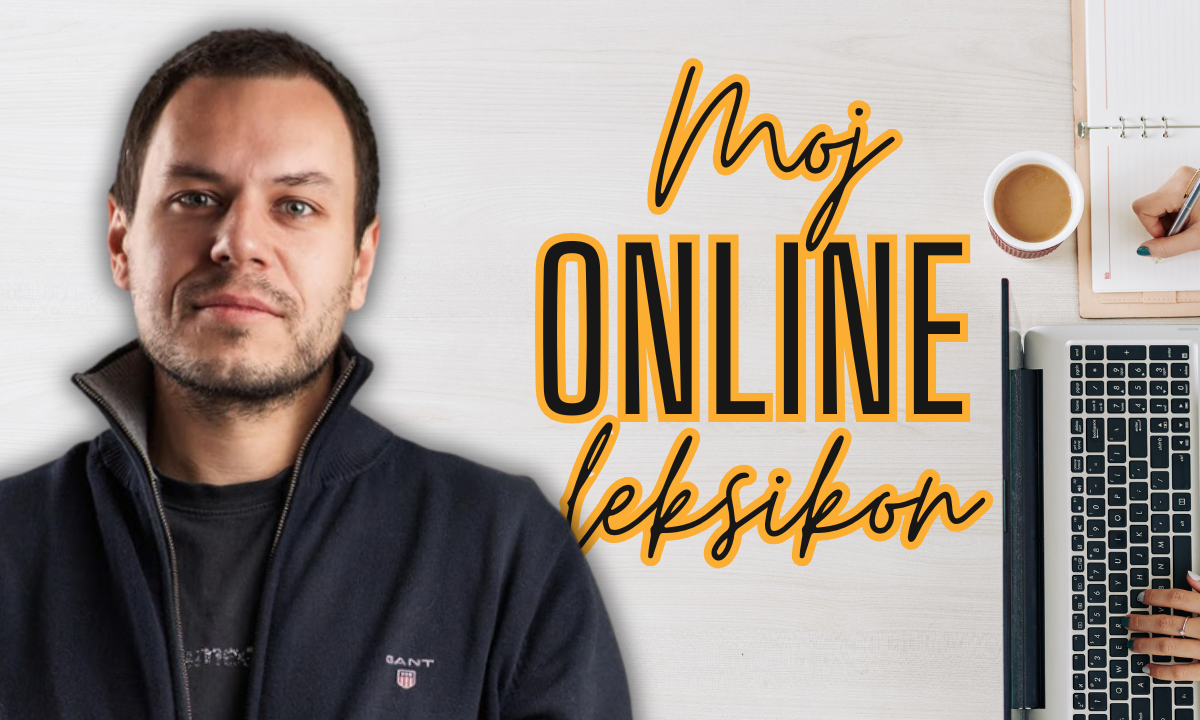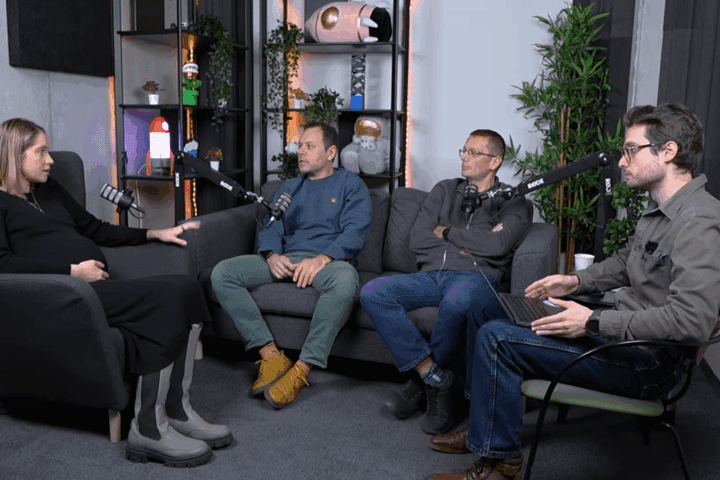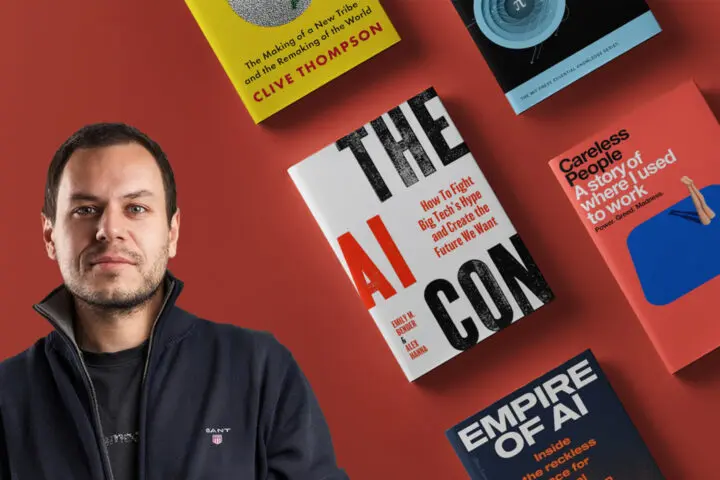Love, Death, Robots & missed Bitcoin opportunities. What’s the “online life” of our CEO Krešimir
This is an English translation of the Croatian ‘Moj Online Leksikon,’ which first appeared on Netokracija.
Krešimir Končić is the founder of Neuralab, a web development, design, and eCommerce agency where he has been working as a director for more than 17 years. Throughout his long career, he has collaborated with a number of different brands including HBO, P&G, Vipnet, Konzum, and many others. His company is the only ISO certified WooCommerce partner, and Clutch ranks it among the top 10 global companies engaged in eCommerce applications.
Perhaps unexpectedly, Krešo watches a lot of archaeological content on YouTube, and he shared his favorites with us. The highlight of his social media content is “devouring greasy burek in Skopje,” and if he had chosen a different career, he would probably have ended up as an ultra-useful gastro influencer. Find out in which Facebook group Krešo is active, what he plays, and what he binges below.
What was your first online username or nickname?
“Konac” – which somehow moved from school recess into my online life.
Do you watch YouTube and what kind of content?
I enjoy watching Flint Dibble and MiniMinuteMan dismantle pseudo-archaeology, i.e. debunk any kind of pseudo-science. The best example of this is Graham Hancock – a journalist who claims that the roots of modern society stem from an advanced seafaring civilization that mysteriously disappeared about 12,900 years ago.

The thing is, Graham has a huge following, a bunch of published books, multiple guest appearances on Joe Rogan (of course), and Netflix even gave him decent airtime in the series Ancient Apocalypse. In it, he argues that his narrative about the lost civilization “just has to be true” because it neatly explains all the world’s mysteries like the pyramids, the Great Sphinx, and great-great-grandpa’s ability to move huge stone blocks.
Hancock goes so far as to suggest that this ancient civilization had scientific sophistication on the level of the 18th century – which didn’t sit well with the aforementioned Flint, MinuteMan, and other archaeologists.
I mention all this because the same pattern of “mega claims, mini evidence” influencing is clearly visible in our own industry, which is full of all kinds of Hancocks, particularly evident in the bombastic headlines about how artificial intelligence is about to annihilate humanity.
Which social network do you use the most?
I enjoy occasionally posting a story on Instagram. I’ve also figured out a way to filter out LinkedIn fakes – so what remains feels like quality content.
If you were an influencer/blogger, what would be your niche?
Paqito devouring greasy burek in Skopje – and declaring it the winner – is my top social media content. I always imagine myself as an ultra-useful gastro-Krešo influencer.
Which app would you ban if you could? Why?
If you’re asking jokingly, then Apple Arcade: Lego Star Wars Battles, because I waste way too much time on late-night couch gaming.
If I put on a more serious face – I think moderation is better than bans – and I agree with the current recommendations that social networks should only be “opened” to young people after their 16th birthday.
Do you use AI tools and what for?
At Neuralab, we use every possible AI tool and have been doing so for two years… ChatGPT, Midjourney, Perplexity, Copilot, and the newer Gemini since we also use the full Google suite. Adoption of these Gen AI tools isn’t as widespread as people think; it seems to me that this is due to their real (good) usefulness for some activities, and questionable usefulness for most daily tasks. Here’s an example usage report for Gemini from one of our teams…

In parallel with Neuralab, I’m writing “Coding Is The Easier Part,” a book about technology and programming – and GPT-4.5 helps me the most with rewriting paragraphs. I’ve fed it my columns and now massage it using those past texts to reorganize rough new ideas into something meaningful. But honestly, I’m not more productive because of it. Sometimes I turn it off and write everything myself. It’s a love & hate relationship.
Which AI tool is your favorite?
ChatGPT is my favorite because I’ve organized my projects and contextual materials within it, and frankly, it has the simplest no-bullshit User eXperience. Excellent iOS and Mac apps are just icing on the cake.
What was the last prompt you entered into an AI tool?
I had a medical check-up the other day, so I decided to try the GPT-3 model – I fed it blood test results, blood pressure, cholesterol, etc. Then I showed it a picture with four different peanut packages and asked: Which one has the least salt? The guy somehow imagined it was hibiscus tea, so he started explaining how there’s no salt in those. Quite amusing. Or worrying. Depends on which influencer you follow.
Have you invested in crypto?
We started mining Ethereum within the company sometime around 2015 / 2016, as soon as it hit the market. Neuralab even invested in a couple of ICO projects back then, and today we’re experimenting with payment technologies within the WooCommerce ecosystem. I’m generally involved in the web3 space, but I’m not interested in the bull/bear price rollercoasters – I’m more drawn to the underlying technology.
OK, there was one moment where I could have become a multibillionaire. Around 2011, I was researching how to even buy Bitcoin – because back then, that was serious science fiction. I think I spent the whole afternoon setting up some clunky wallet – but at the same time, I got hungry, and my mom just called for sardines and potato salad, so I paused the whole search.
In the next few days, BTC dropped from $16 to around $3 (fun times), so I thought “whew, dodged a bullet.” I never got into BTC later on because I was more drawn to the open-source community, programmability, and solarpunk narratives of Ethereum – but to each their own.
Do you follow TikTok? What is – or would be – on your For You Page?
I’m not on TikTok, and even less so on the For You Page.
How do you stay informed online, which media do you follow?
I regularly follow several newsletters and authors weekly:
- Benedict Evans (paid newsletter, $10/month): He does a great job dissecting tech news; his columns are full of original, diverse, and well-thought-out ideas.
- Clive Thompson: Has a fantastic link-fest newsletter that covers the tech scene but with an emphasis on fringe topics like science, art, medicine, archaeology, and other non-IT angles. Thompson is also the author of one of the best books about programmers, Coders: The Making of a New Tribe and the Remaking of the World.
- Antonija Bilić Arar: Similar to Thompson, I read her Substack Preporučena Pošta immediately when it arrives – great selection of topics.
- Mike Monteiro: A designer with a slightly offbeat writing style whose life columns brilliantly reflect and dissect the business and tech world.
- Vitalik Buterin: Creator of Ethereum, a rare original thinker in the web3 world. I appreciate his solarpunk philosophies and blogging style.
- Paul Graham: Well-known Silicon Valley figure best described by IBB’s words: “Paul Graham writes better than he invests, and he’s actually a top-notch investor.” His column Having Kids is an absolute must-read for anyone wondering if they’ll be good parents.
- Julian Togelius: AI specialist in the gaming industry. His book on AGI is very good, but the essay Is Elden Ring an existential risk to humanity is a must-read 5.0 material for anyone dealing with AI-generated existential crises.
- Paul Ford: One of my favorite columnists, with a style similar to Mike Monteiro. Ford writes for Wired, and his Postlight podcast is an excellent source of knowledge, especially if you come from the agency world.
From Croatian portals, I always follow Netokracija and Arhivanalitika; for deeper reading I use Kindle books and Audible audiobooks. A few recent examples:
- Hannah Ritchie: Not The End Of The World: Once again debunking myths, this time about climate change, planetary pollution, and solutions that may not be as great as they seem (hint: paper straws). The book was translated into Croatian by Mario Gatara, whom I follow for all things “financial.”
- Dava Sobel: Longitude: A fascinating story about John Harrison, an 18th-century clockmaker who was the first to create a clock precise enough to determine geographic longitude at sea. An inspiring lesson in how much perseverance, nerves, resourcefulness, and resistance to politics you need to push ideas that change the world. A great contrast to today’s startup world, which often has too much money and too little real craft.
- I’m currently reading The AI Con by Emily Bender and Alex Hannah. It’s a bit too negative for me. I understand the need for linguists and natural scientists to debunk AI hype, but excessive generalization that “everything is useless” is not constructive. I hope to write a more detailed review or column on this topic by summer.
Has any of your social media comments or posts ever attracted way more attention than you expected?
Fake AI narratives really raised my blood pressure – so about a year ago I wrote about how Rimac Robotaxi is a heavy scam. The post was picked up by Index, and it seems over 100,000 people saw it. On the other hand, posts that go deeper into explaining those same scams (and solutions) are a total flop. People are weird 🙂
Are you willing to pay for a mobile app (non-work-related), or do you only use free ones? If yes, which one?
I use premium Pocket Casts to listen to podcasts – I can’t live without it. I also have a paid OpenAI ChatGPT account, and my Revolut plan includes a VPN, Wolt+, and Perplexity subscription. As for streaming, I have them all – YouTube Premium with music library, Disney+, Netflix, Amazon Prime, and HBO. I could write all day about Neuralab-based tools, but that’s probably better for another time. First-world problems, I know.
What do you think about Reddit? Which subreddits do you follow?
I actively read it; but I’m not in the habit of commenting. The funniest Reddit story to me is how AI labs use it heavily to train large language models – and a twilight zone bug occurred where GPT-3.5 would crash if you entered the name of a certain Reddit user in a prompt…

Are you active in any Facebook group?
I used to be on the virtual Zagreb market; but it’s better to just visit Dolac + Broom 44 directly.
Do you play games?
In 2020, I became a proud father and cut all gaming to zero 😭.
But right around then Lego Star Wars Battles (LSWB) came out, which I haven’t stopped playing since. It’s a real-time strategy game blending tower defense, Clash Royale-style combat, and best of all – playing against real people without bots and pay-to-win tricks.
It’s pure skill and perseverance. One match lasts about three minutes, which is perfect for any parent who catches a micro-break while waiting in line, on the toilet, or after the kid falls asleep. In my opinion, LSWB is one of the most well-balanced games on the market – every game dev team should study it.
The best and dumbest thing you bought online based on a recommendation?
Best: Peak Design backpack. The internet praised it to the skies – and it was right. Two coworkers even confirmed the reviews to me, which is probably the holy grail of every eCommerce merchant. Btw, after the purchase, I received an automated email from the CEO saying they are bootstrapped & proud – like the Basecamp/DHH philosophy – so I sent him a few questions for my book. To my surprise, the guy personally responded within a day (saying he couldn’t 😭).
Dumbest: Some Chinese mini projector that throws so little light it can realistically only be used as ambient backlight.
What’s your digital guilty pleasure?
Instagram started showing me skateboarding tricks in my feed, and sometimes I can’t stop the SK8 doomscrolling. It’s a total time-waster; but I guess it reminds me of the Tony Hawk Pro Skater – more carefree – times.
Do you listen to podcasts? If so, which ones?
Podcasts have long been my source of evergreen information. Pocket Casts app says I’ve listened to 1,077 hours of content – a bit scary – but much of it serves as inspiration, direct quotes, or material for the book. Btw, I listen to them when I’m on the move – biking, walking, gym, driving.
I’ve gone through all the classics: Lex Fridman, Joe Rogan, Decoder, Kara Swisher, Bankless, Dwarkesh, Prof G, Bubble Trouble, The Studies Show… I like hearing multiple angles on the same topic; and I’d highlight three podcasts that are top-top for me – I listen to every episode:
- Our Opinions Are Correct – my absolute favorite podcast. Annalee Newitz and Charlie Jane Anders have an interesting formula: they connect current topics (like protests in Serbia or America) with analysis through a science fiction lens and how SciFi treats the same themes. Extremely original and smart.
- If Books Could Kill – Michael Hobbes & Peter Shamshiri. A great podcast for anyone who despises self-help books, but personally important to me because the hosts analyze and deconstruct almost any questionable claim, not just from self-help. Financial self-help gurus are a special target.
- Hidden Forces with Demetri Kofinas – Kofinas is a sharp host who gathers economists and tech experts for a critical, completely hype-free analysis of business and tech narratives. Especially recommended for those actively investing in stocks or crypto.
If someone were to search and stalk you online, what could they find?
That I had wide-ranging activities during my student days – from delivering wine around Zagreb – to building unmanned aerial vehicles.
How careful are you about your privacy online and how?
Any OpSec expert will tell you that you either don’t answer these questions – or even better – you literally lie. Obfuscation, you see.
If your internet life had a soundtrack, which song would be playing?
Life on Mars? by David Bowie. IYKYK.
What was the last series you binged?
I love new forms of short, explosive TV series with unconnected episodes. Two strongest examples are Amazon’s Secret Level and Netflix’s Love, Death & Robots.
Secret Level was a special treat because every episode takes you back into a specific video game – WarHammer, Dungeons & Dragons, Unreal, etc. – and in about 15 minutes they deliver such brilliant storytelling and CGI that you’re just left wanting more.
Love Death & Robots is also top-notch. It even has that Black Mirror moment (commenting on, boosting, or criticizing technology) but packaged into sweet little ten-minute episodes that just fly by.

If you could have a virtual meeting with any historical figure, who would it be and why?
Maybe Judas – just to casually hear his side of the story.

If you could automate one thing in your life using AI, what would it be?
Monthly payroll and invoicing at Neuralab is my personal AGI test. When AI can master that swamp of decisions, reminders, and general nagging from clients, partners, and colleagues – then I can finally hit the beach.
Do you have any life hack you learned online that actually changed your life?
“Inbox All” + “Inbox Zero.” The idea is this – no matter how many project management tools you have for slapping and delegating tasks; anyone can at any time drop an activity into your email inbox – and totally disrupt your carefully polished workload.
So I nicely funnel all possible tasks into my inbox – I have connectors that send Slack, Trello, and GSuite activities directly into email – and immediately archive anything that doesn’t require my attention. Only then, using the Snooze function – in true Kanban fashion – I schedule the remaining “my” tasks exactly when I’ll do them.
Croatian version of this article is available at Netokracija > https://www.netokracija.com/online-leksikon-kresimir-koncic-235571

